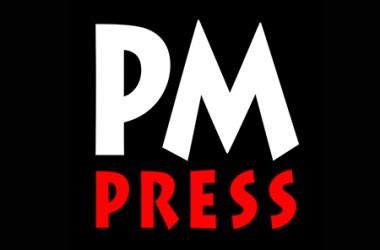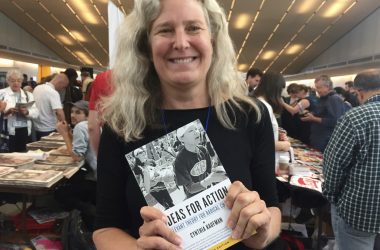By Cynthia Kaufman
My friend Annette Aylward is trying to make a living as a crafts person. She makes beautiful handmade linen towels. She believes in craft. She loves to make these things. To make a living making handmade things woven out of linen she needs to charge a lot of money for them. And she is successful at that. But she’d rather be able to make a living making these towels and selling them to people with less money.
William Morris, the founder of the arts and crafts movement in England had the same problem. He made beautiful textiles using pre-industrial techniques. His work was very popular among the upper middle class. Morris was a socialist and lived at the same time as Charles Dickens, when industrial production was creating misery for workers, for the environment, and the quality of things that were made was going down. He lived his life in revolt against the shoddiness of everything being produced in the industrial economy and fought to build a socialist society, where everyone would have their needs met without anyone getting rich off of anyone else’s labor.
William Morris
Morris argued that in older times everyone had beautiful things. Things were made with care and out of materials that had integrity. He wrote:
Just consider what England was in the Fourteenth century. …Those buildings… contained much art: pictures, metal-work, carvings, tapestry, and the like, altogether forming a prodigious mass of art, produced by a scanty population. Try to imagine that. Why if we were asked (supposing we had the capacity) to reproduce the whole of those buildings with their contents, we should have to reply, “The country is not rich enough; every capitalist in the country would be ruined before it could be done.” Is not that strange?[i]
In his own workshop, workers were paid decent wages, there was good light and fresh air, and everyone’s voices were heard in terms of how things should be done. The production was capitalist, in the sense that Morris made a profit off of it: workers were not paid the full value of their labor. And yet, many logics, besides the logic of capitalist profit making went into how things were done there.
The point of the whole enterprise was to make things in ways that created beauty and happiness. The profits were a part of the enterprise, but they weren’t what drove the decisions about how things would be done.
Shoddiness
When production is driven by profit, then shoddiness and misery are likely to be what gets produced. When my daughter was little she had quite a bit of cheap jewelry. The Center for Environmental Health started exposing the fact that much of the jewelry sold to children in the US at that time had lead in it. We snuck her precious shiny things away from her. Responding to the attempts to get lead out of the jewelry sold to children, one corporate spokesperson said that it was important that we understood that it just wasn’t cost effective to sell jewelry without lead. When production is done for profit only, we end up with children’s jewelry that causes brain damage.
For a craftsperson, it is tough to make a living selling things on the market. They are competing with sweatshop labor, with economies of scale, with more efficient systems for producing things for less cost.
Getting Past Capitalism
In my book Getting past Capitalism: History Vision Hope, I argue that rather than waiting for a revolution to overthrow capitalism we can make our lives better by pushing back on the capitalist aspects of our society in a wide variety of ways. One important part of the struggle against capitalism is to find ways to lessen what I call the economic dependency trap of capitalism, whereby our freedom to live our lives in ways that are deeply satisfying is thwarted by the extent to which we a dependent upon the profit that capitalists make to get the jobs we need to survive.[ii]
When compared with industrial agriculture, organic agriculture has all sorts of benefits. It is healthier for the workers, the food usually tastes better, it is better for the long term health of the soil, it is much less fossil fuel intensive. Delicious food can be made in ways that don’t cause misery. It is generally more expensive, because it is more time intensive, and in a capitalist society time is money, and money and time become scarce.
But time is not inherently scarce. What if the working class had enough power to demand that the fruits of productivity gains went to workers? And what if they took those gains as time off? Productivity in the US increased 80% from 1970-2011.[iii] If workers were to have captured just part of that and turned it into time off, we could all be working 20 hour weeks. Imagine how many beautiful things we would have time to make.
Markets don’t exist in isolation. Rather they are shaped by policies. If agribusiness had to pay the cost of the greenhouse gasses they emitted, and if it wasn’t subsidized, then sustainable agriculture would be cost effective. We don’t need to overthrow capitalism to make that happen. But we do need to push the systems we inhabit and prevent them from favoring the interests of those who would use markets for private gain at the expense of the rest of us.
If we don’t challenge capitalism we end up with a world in which useless shiny toxic objects are sold to children and beautiful things only exist in the homes of the rich.
A World of Beautiful Things
We can challenge capitalism and shift the equation, such that more of the profits go to workers. We can push for government regulations that won’t allow toxic jewelry to be sold to children. We can push for higher minimum wages. We can push for national health care, so people aren’t dependent upon a job in wage labor to get health care. We can get government to subsidize the production of sustainable and beautiful things. We can get our governments to invest in training artisans to make beautiful things in sustainable ways. We can create systems where there is easy access to credit for those creating in small workshops. If we had guaranteed health care and a guaranteed minimum wage, then people engaged in craft production could make the things they enjoyed making and would not need to charge much for them.
I have a job that leaves me with time to write things that I think are of value to others and that I enjoy writing, and for which no one pays me. My writing is non-capitalist production. More than half of what is produced in the US is non-capitalist production. [iv] People work for governments; they work in worker owned cooperatives; they trade with one another; they make things and give them away.
Those artisans who are making beautiful functional things now are swimming upstream against a powerful current. They are engaged in what is called prefigurative politics, where we live as if we already inhabited the utopia we desire. They fail if they are nothing more than a niche market for the rich. They succeed when they show us that another world is possible; that things can be created without creating misery or destroying the environment; that there are many motivations besides the profit motive; that our lives can be aesthetically rich and full of pleasure.
Annette gave me one of her beautiful linen
tea towels. It hangs in my kitchen and I use it as part of my bread
making process. She also taught me how to make bread using the recipe
from the village in Germany where she grew up, where people still use a
community oven to bake bread. The economics of that her towel, of my
bread, and of that communal oven all work out just fine. No one profits
but everyone gains.
[i] E.P. Thompson. 2011 William Morris: Romantic to Revolutionary. Oakland; PM Press, page 233.
[ii] Cynthia Kaufman. 2012. Getting Past Capitalism: History, Vision, Hope. New York: Lexington books.
[iii] http://inequality.org/celebrate-rising-productivity/
[iv] J.K. Gibson-Graham. 2007. A Postcapitalist Politics. Minneapolis: University of Minnesota Press, page 68.



